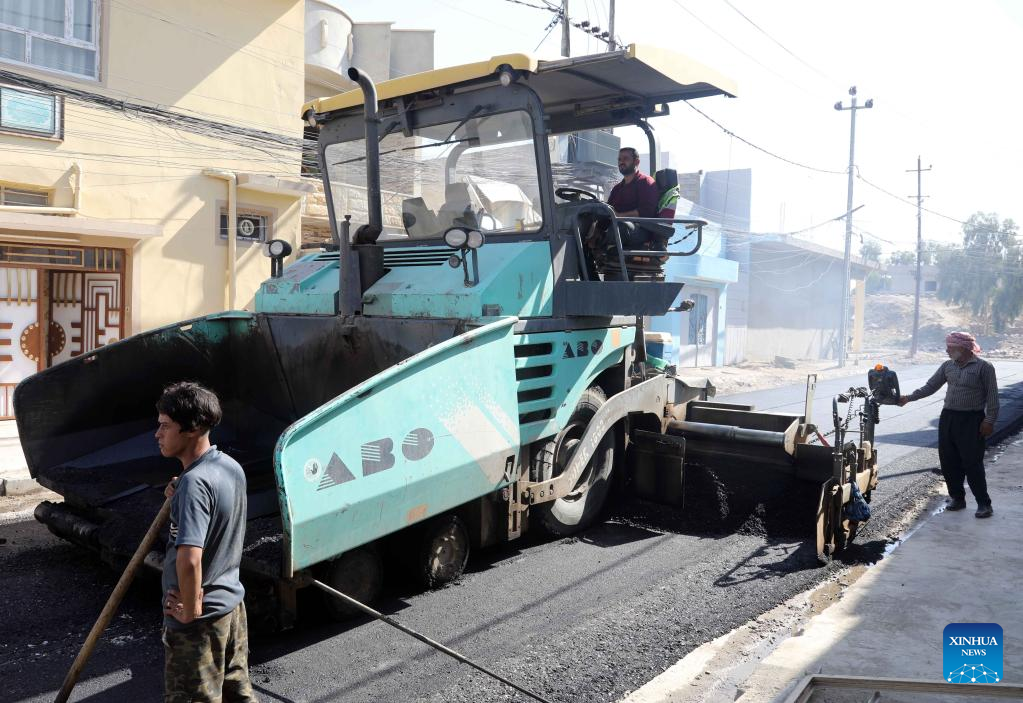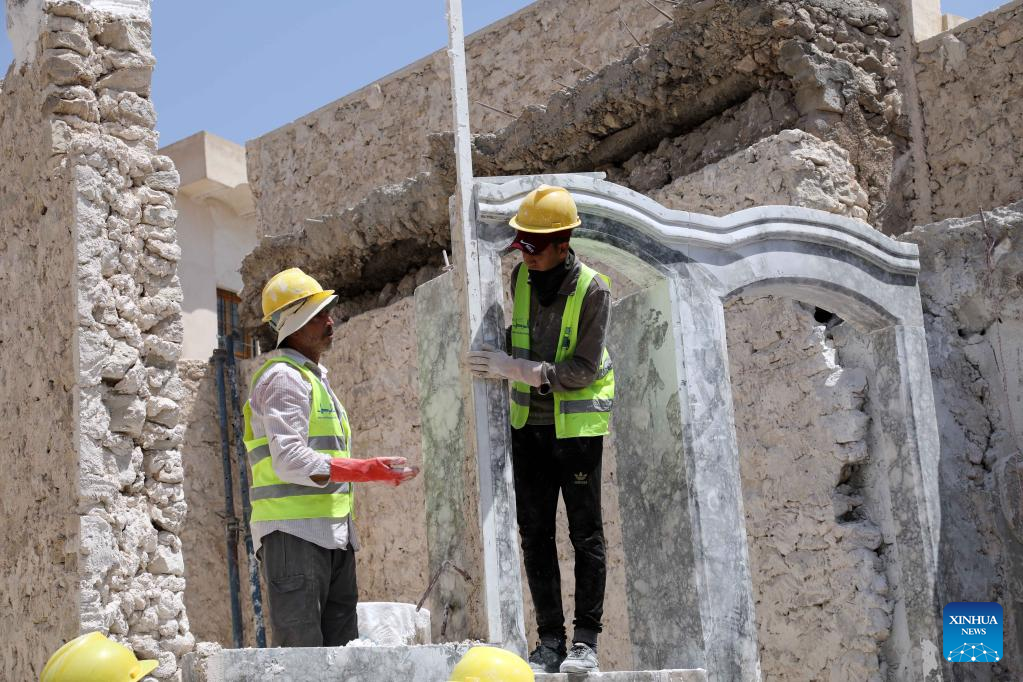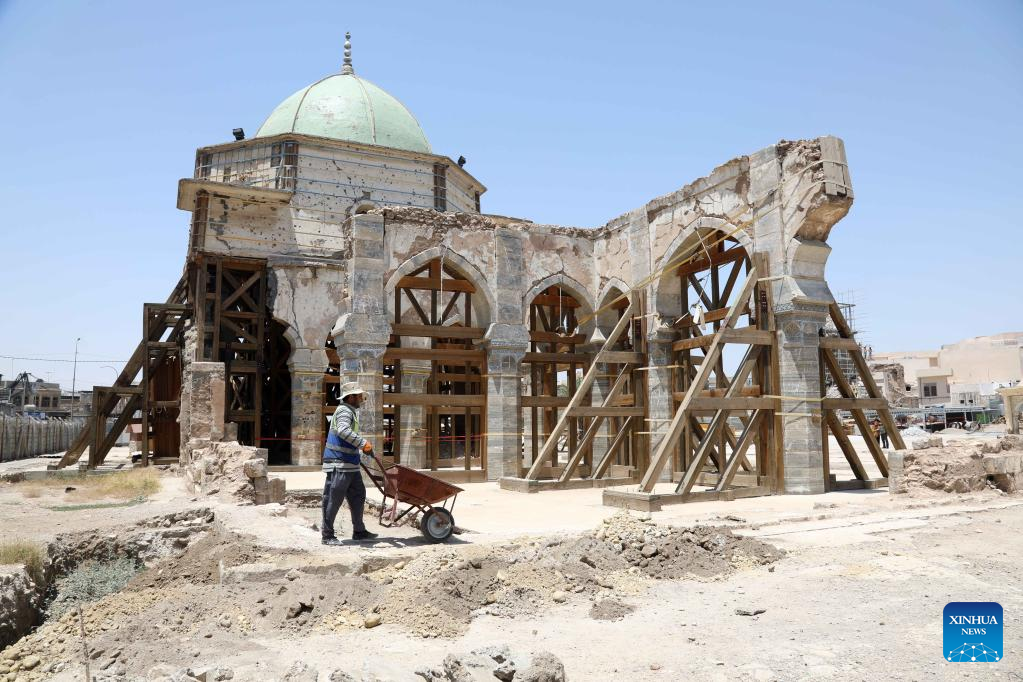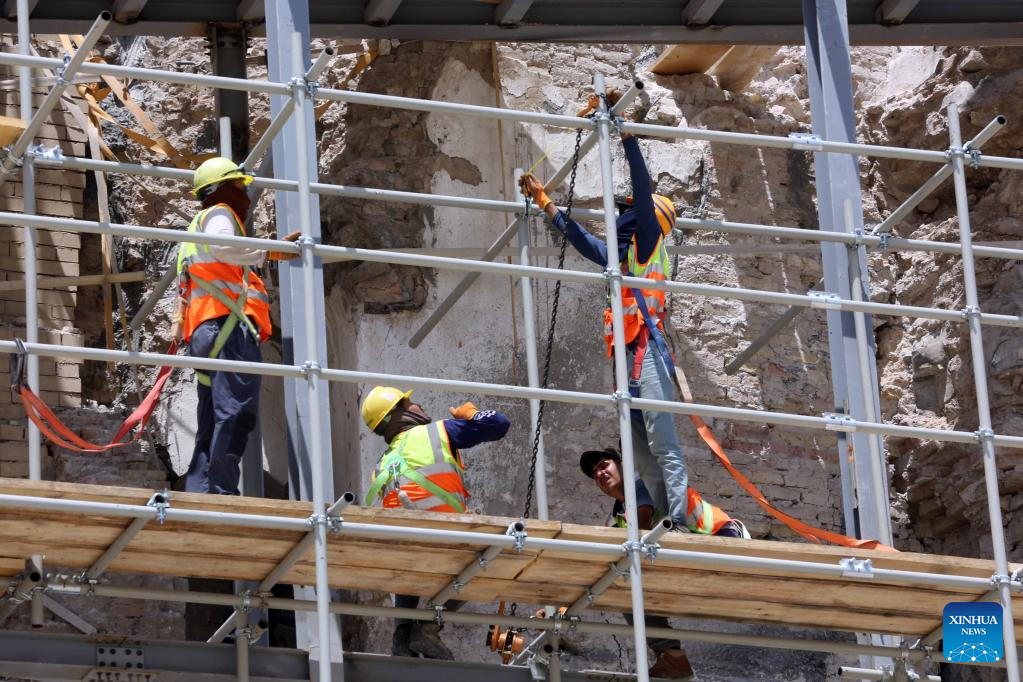
Workers pave a street in the old city of Mosul, in Iraq, on July 4, 2022. Five years after liberation from the extremist Islamic State (IS) militants, life has returned to normal in Iraq's second-largest city Mosul. (Xinhua/Khalil Dawood)
BAGHDAD, July 9 (Xinhua) -- Five years after liberation from the extremist Islamic State (IS) militants, life has returned to normal in Iraq's second-largest city Mosul.
The old painful picture of Mosul has changed: the rubbles and ruins left by the fierce battles with the IS militants are gradually replaced by the booming commercial activity in many areas of the city, where many of its famous traditional markets are now brimming with various products and shoppers could go around freely without fear.
Mosul, about 400 km north of the capital Baghdad, was seized by the IS militant group in June 2014 and was liberated on July 10, 2017 after nine months of fierce fighting. The battles left massive destruction to the city, especially in the old city center.
Sitting in his butcher shop in the ancient al-Attareen market in Mosul's old city center, Ali Saadi Alwan told Xinhua that "our business now has doubled from the previous year, and many customers are coming to us. In general, the market is very good thanks to the security and reconstruction."
Alwan said the restored peace enabled him to rebuild his destroyed house in the al-Shahwan neighborhood in the old city center.
Also sharing his optimism is Dalshad Ismail, a 32-year-old man coming from eastern Mosul to shop in the al-Saray market in the old city center. He told Xinhua that the better situation in Mosul "is the result of the better security and stability in the city by the efforts of the security forces."
Meanwhile, reconstruction work is underway at the Grand al-Nuri Mosque, which was blown up by the IS militants on June 21, 2017.
The mosque holds symbolic value to the people of Mosul as it gave the city its nickname "al-Hadbaa" or "the hunchback" with its famous leaning minaret.
Omer Taqa, an Iraqi engineer at the reconstruction site, told Xinhua that "we started the reconstruction work of al-Nuri Mosque and its al-Hadbaa minaret in 2019, and we removed approximately 5,600 tons of rubble, in addition to 11 explosive devices planted inside the walls of the mosque."
The reconstruction of Mosul needs 12 to 15 billion dollars, said Mosul Mayor Amin al-Fanash, citing reports of international organizations.
"Mosul, especially the old city center, was badly devastated by the military and terrorist operations, as more than 12,000 housing units were destroyed in the old city, and the devastation ranged from 80 to 100 percent."
He said that during the past three years, 1,200 out of the 1,700 planned reconstruction projects have been fully completed, and the rest will be completed before the end of this year.
The reconstruction plan covers projects in the health sector, municipal construction and government buildings, among others, said the mayor. ■

Workers operate on reconstruction of destroyed houses surrounding the al-Nuri Mosque in Mosul, Iraq, on July 3, 2022. Five years after liberation from the extremist Islamic State (IS) militants, life has returned to normal in Iraq's second-largest city Mosul. (Xinhua/Khalil Dawood)

Photo taken on July 3, 2022 shows the reconstruction site of the Grand al-Nuri Mosque in the old city of Mosul, Iraq. (Xinhua/Khalil Dawood)

Builders work at the reconstruction site of the al-Hadbaa minaret in the old city of Mosul, Iraq, July 3, 2022. (Xinhua/Khalil Dawood)



